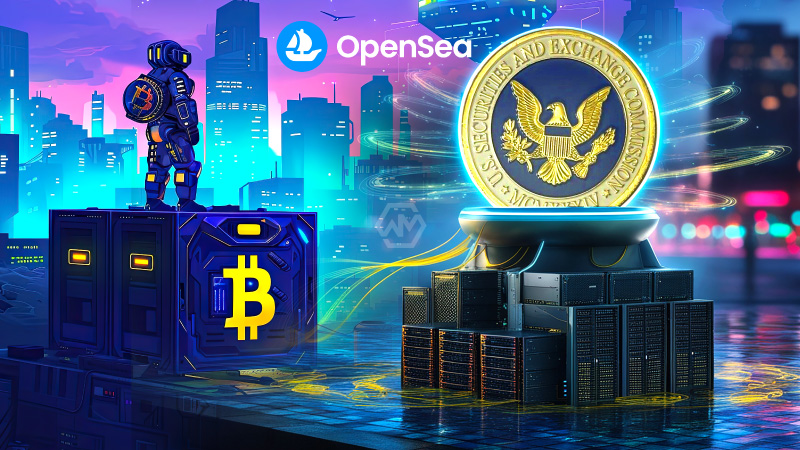- Regulatory Uncertainty: The SEC’s action introduces potential instability in the NFT market.
- Legal Costs: OpenSea might face significant legal expenses if it contests the notice.
- Market Adaptation: Clearer regulations could legitimize and strengthen the NFT market over time.
The SEC’s Wells Notice to OpenSea signifies a critical juncture for the NFT sector, potentially challenging its current framework.
This move highlights the regulatory scrutiny faced by major digital asset platforms and introduces uncertainty about how NFTs might be classified under U.S. securities laws.
Will SEC’s Notice to OpenSea Shape the Future of NFTs?
However, this situation also offers an opportunity for regulatory clarity. If the SEC’s actions lead to more definitive guidelines, it could attract institutional investment and foster a more stable market environment. The NFT industry, known for its rapid innovation, might adapt by enhancing compliance measures and improving transparency, which could ultimately strengthen the sector.
The uncertainty introduced by the notice could result in market instability, similar to past reactions seen with other digital assets facing regulatory challenges. If OpenSea opts to contest the notice, the financial and legal repercussions could impact its operations and the broader market. This scenario might lead to a temporary slowdown in NFT trading and innovation.
On the other hand, clearer regulatory frameworks could offer long-term benefits by providing legitimacy and attracting institutional investors. The NFT sector’s resilience and adaptability might enable it to navigate these changes, leading to a more structured and potentially robust market environment. Global regulatory differences could also provide avenues for platforms to operate under more favorable conditions.
Overall, while the SEC’s notice introduces immediate challenges, it may ultimately lead to a more regulated and secure NFT market, fostering growth and stability in the long run.
“How this impacts the NFT world will really depend on how OpenSea and the community respond.”



